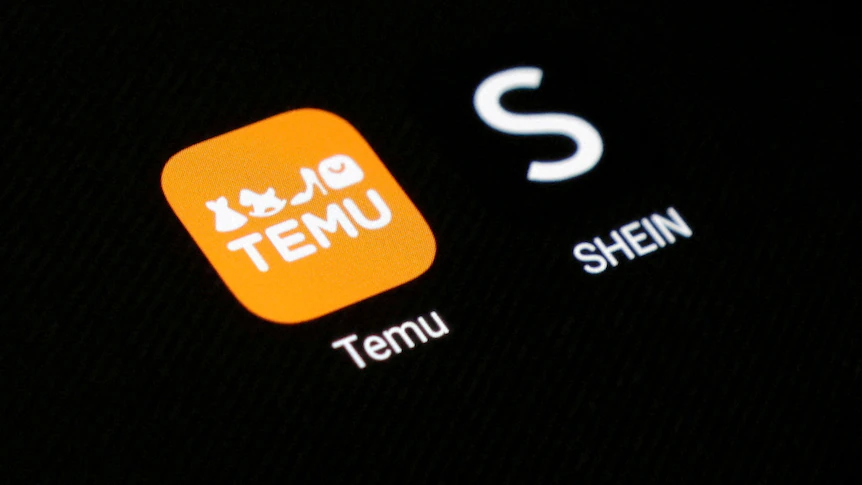Copyright abc

Warning: This story contains details of child sexual abuse. Child sex abuse doll torsos and disembodied heads are being offered for sale on Chinese-based online marketplaces Temu and Shein in an apparent bid to get around laws forbidding the importation of sex abuse material. Australian law makes it illegal to possess, advertise, order, post and import child sex abuse dolls. But in addition to advertising them on mainstream platforms, sex abuse campaigners say Temu and Shein will ship them to Australia. What are child sex abuse dolls? Child sex abuse dolls are life-size dolls made to look like pubescent and prepubescent children for men's sexual use. Overwhelmingly, the sex abuse dolls depict little girls, sometimes as small as 60 centimetres tall and roughly the same weight as a child. Currently manufactured in overseas markets including China, Hong Kong and Japan, they are designed with vaginas, anuses and mouths that fit an adult penis. Buyers can tailor skin, hair and eye colour, facial features, body shape, WMDoll, one of China's biggest sex doll makers, says on its website. Australian law bans the sale and advertising of child sex-abuse dolls — any doll that looks under 18 and is intended for sexual use. Even with adult features like make-up or developed breasts, they're still illegal. It is also illegal to send these dolls through the post. Heads, legs and torsos are being sold separately Campaigners say the dolls are advertised by Temu and Shein on global platforms, including Instagram and X. Caitlin Roper is an author and a campaign manager for Collective Shout (CS), an activist group that fights against the sexualisation of girls in media, advertising and popular culture. She says sellers are finding ways to get around restrictions and laws. "In some extreme cases, a manufacturer said: 'I'll run a tutorial for anyone who is interested, I'll send you out a doll or parts and then I'll teach you how to make the penetrable orifices yourself'." Ms Roper said the products were often described as "adult toys" despite depicting children holding soft toys. "A few years ago, we noted terms like 'flat chest', 'loli', 'mini' and 'young girl' were used to promote these products," she said. "Then we noticed a distinct change — sellers were using terms like 'adult', 'D cup', 'woman' and 'girlfriend' on dolls that were undeniably modelled on prepubescent girls." Temu called out over a year ago In August last year, CS first exposed Temu for selling child sex abuse dolls and replica body parts. CS set up an action alert page where supporters could email Temu executives to demand the site remove all child sex abuse dolls. After several weeks and 465 supporter emails, the products were removed and the search terms "child sex doll" and "girl sex doll" were blocked. Two weeks later, CS discovered child heads sold by a different Chinese retailer, the fast fashion brand Shein. The campaign called Shein out online for sexualising girls but did not receive a response. In July this year, CS found what appeared to be child sex abuse doll heads on Temu. But this time they were being marketed as mannequins for make-up practice, hairdressing, and to display jewellery and hats. Ms Roper said she found an identical Temu product of the heads on Shein, marketed as sex doll heads. "One child listing [advertised as a mannequin head] described it as an '18-year-old'. This was a giant red flag — why would it be necessary to include an age on a mannequin head intended for make-up practice?" So CS called the company out on social media again, and the heads disappeared the following week. But over the last few weeks, Ms Roper has found more child sex abuse dolls on Temu and Shein. And this time, they are headless. Border force reports 'disturbing rise' in attempted imports In July, the Australian Border Force (ABF) reported a "disturbing rise in attempts to import child-like sex dolls", seizing 47 in the past year alone. A silicone torso of a child sex abuse doll, infant clothing, and "a flesh-like apparatus" consistent with child-like appearance were among the items seized by ABF officers over the past four years. A 2025 study by The Queensland University of Technology found the median age of men charged with possession in Australia is 43 years. The ABF said its officers were trained to spot "goods of concern" and seize such items amid millions of imports each year. Meanwhile, Australian Association of National Advertisers and the Australian Competition and Consumer Commission said reports of illegal product went straight to law enforcement. But the question remains, if they are illegal, why has the Australian government not done anything about it? The Attorney-General's Department did not answer the ABC's questions on if they were aware Temu and Shein were advertising the illegal dolls online. 'No evidence' dolls prevent abuse of real children One expert says men who import these dolls are often already offending against children, and are typically found to be in possession of child sexual abuse material. Professor Salter is the director of the Childlight East Asia and Pacific Hub at UNSW Sydney. His work involves researching the impact of child sexual abuse and exploitation. "We simply have no evidence of any offender using this material in order to prevent the onset of offending," he said. "We see a really unhealthy culture that has developed around child sexual abuse doll ownership. We are really trying to support people with a sexual interest in children to manage that sexual interest, not to encourage it." Temu is everywhere Launched in Australia in March 2023, Temu is now the country's most popular retail marketplace app, according to figures from Australia's consumer watchdog. Temu has more than doubled its Australian advertising spend since Donald Trump announced new US tariffs on imports. The platform's monthly Australian users increased by 50 per cent in the June quarter following the change. But this is not the first time Temu has shown adverts of products sexualising children. In 2023, Temu was called out by the UK for advertising an eight-to-11-year-old girl wearing a bikini and posing in an adult way. Temu said the advertisement went against its marketing policy and removed it from its site. In a statement to the ABC, a Temu spokesperson said: "We take product safety and regulatory compliance very seriously, and all of our third-party sellers are subject to our stringent platform rules as well as local laws and regulations." The ABC has contacted Shein for comment.



